Shining Stars: An interview with Years and Years’ Olly Alexander
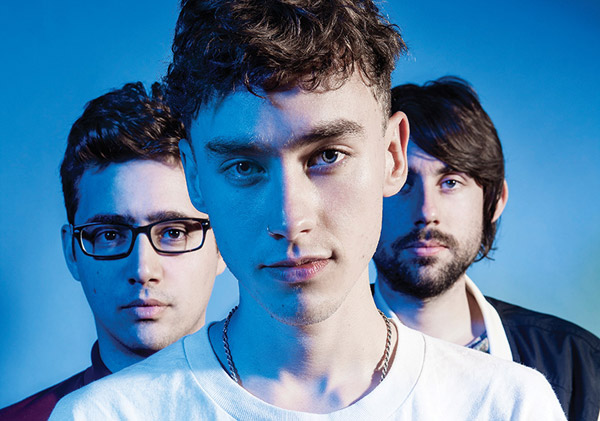
In their video for “Shine,” Years & Years front man Olly Alexander stands in a daze as a house violently explodes around him, debris swirling in every direction.
The video appears to draw its inspiration from E.T. and Close Encounters of the Third Kind. But it can also be viewed as a metaphor for the career of this British electronica trio, whose career in the past year has exploded, first in the U.K. and now in America.
“It’s almost too overwhelming,” says the impossibly soft-spoken Alexander. The 25-year-old college dropout had never expected hear the songs he wrote played on the radio, let alone to be performing them for packed houses around the world. “I still haven’t put my head around it.”
Comprised of singer Alexander, bassist Mikey Goldsworthy, and keyboardist Emre Türkmen, Years & Years were recently awarded the coveted BBC Sound of 2015 honor, propelled in part by a number one single, “King.” Their sumptuously lush synthpop sound is punctuated by Alexander’s crisp, clear tenor and effortless way with complex phrasing. Alexander’s melody lines are slick and catchy, and nowhere is this more evident than on “Shine,” perhaps one of the most addictive listens to emerge on the electronica front in years.
Even stranger is that the formation of this band, now poised for genuine superstardom, came about by happenstance. Goldsworthy, an Australian transplant to England, was looking to start a group. Rumors abound that he asked Alexander to be part of the group after hearing him sing in the shower at a friend’s house. But Alexander tells of more mundane origins.
“I met Mikey at a party at my house,” recalls Alexander, who had a budding career as an actor, and had appeared in the hit British series Skins and opposite Jim Broadbent and Jeff Goldblum in the hit film Le Week-end. “And he was like, ‘I’m starting a band.’ And I was like, ‘Let me be in your band.’”
The alchemy worked. Years & Years may not be a household name but their star is rising, indicated by an upcoming 9:30 Club appearance on Saturday, Sept. 19, which is already sold out.
Alexander, who is gay and makes a point of writing male pronouns into his lyrics, marvels over the direction his life has taken.
“It’s wild and definitely crazy,” he says. “I’m trying to make the most of it while I can.
METRO WEEKLY: Let’s start with your childhood. What was it like?
ALEXANDER: I was born in Yorkshire, which is in the middle of England. We lived in a city called Blackpool for a long time — it’s kind of the Las Vegas of the UK. It has a theme park and fair grounds, it’s by the sea. My dad worked in the theme parks, so I was always in and out of them. And we didn’t have much money, but we weren’t destitute or anything. We moved from there to the countryside in Gloucestershire, and then my parents divorced when I was 13 and my mum raised us. I spent much of my teenage life in the countryside.
MW: Did you come out as a teenager or did you wait till later?
ALEXANDER: I didn’t really come out to my mum until I was about 20. I had moved to London when I was 18, as soon as I had enough money to do that. I talked to my mum over the phone and I told her I was gay, and she was like, “Yeah, that makes sense, that’s cool.” Didn’t really bat an eyelid. Afterwards I felt like I should never have been afraid to tell her, because she’s always been a very supportive, liberal mum. There was no reason for me to have been afraid. I guess that everyone struggles with coming out, whoever you are, but it was a great experience.
MW: Did you come out to your dad as well?
ALEXANDER: No, I don’t really have a relationship with my dad. I haven’t really seen him since my parents divorced. I have totally lost communication with him — out of choice. And I think he knows now, yeah, I’m pretty sure he knows. But it didn’t seem kind of relevant to bring up or to get in touch because of it.
MW: Do you think that growing up in the countryside keeps people in the closet? Is there more of a hostility there towards gays?
ALEXANDER: The countryside is a little bit less progressive than the city, for sure. Ten years ago there was less visibility for gay people in the media and gay people in culture generally. And the people you heard of that were gay happened to have tragic or doomed stories. There was nobody gay at my school that I knew of. And people — believe me — people always got bullied. Words like fag or queer were just a catchall term for somebody you wanted to insult. So being gay was bad — it was not something you wanted to be. I definitely was aware of that when I was at school. I felt really afraid to admit that was who I was. I think things have changed, but I still don’t think it’s easy, whoever you are or wherever you live.
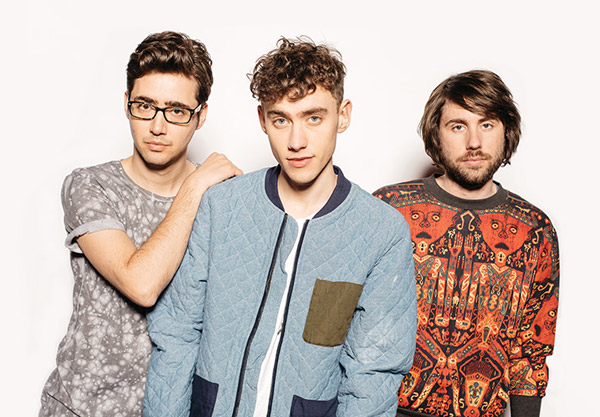
MW: What sparked the realization that you were gay?
ALEXANDER: I had a crush on a friend at school, who was a boy, and I didn’t totally understand what it was at the time. This was when I was 13. But I just knew I wanted spend all my time around him and kiss him. And that was probably the first time. I mean, when I watched Disney movies as a kid, I liked the girls because they looked pretty and nice. But I wanted to see more of Aladdin than Jasmine.
I didn’t fit in at school ever. I felt very much like a misfit. I went out of my way to be different as well; I’d wear eyeliner to school and paint my nails. I wanted to be different as well as feeling very different and I didn’t like a lot of the kids at school. They kind of went for me.
MW: You were bullied?
ALEXANDER: Yeah, yeah, oh, yeah. I was bullied quite a bit. But it tapered off by the time I was 15. I could stand up for myself by then.
MW: What did they do?
ALEXANDER: It ranged from just being called names and people generally picking on me to the slightly more physical stuff, like being pushed around, tripped. But I just hated school. Hated it. I didn’t like the environment. Never felt comfortable. I was small and had big, crazy hair and I was always wearing weird clothes and weird jewelry.
MW: If you’re being bullied, what was it in you that made you want to continue to stand out by wearing jewelry and eyeliner?
ALEXANDER: I felt different inside and I wanted to be different on the outside, too. Like anybody, you’re trying to figure out your identity at that age, and for me, something that felt good was an identity through the external — what I was wearing and how I would present myself. And even though it would sometimes attract attention, it felt like I validated myself. I had a certain retribution in that feeling, you know?
“I wrote a song when I was ten years old and performed it at my school assembly. I was like, ‘I want to sing my own songs someday to thousands of people.’ I was obsessed with becoming that person.”
MW: You started acting at 16. How did that come about?
ALEXANDER: I did this program called the National Youth Theatre. You went and did this course with a theater group and you could go to auditions. I went to an audition for a TV show called Skins when I was 16. The casting director liked me and she said, “I’ll help you get an agent if you want.” And I met up with this agent in London — I took the train down by myself — and she just took me on.
I ended up getting the first job that I went for. I was still at school at this point — I just finished my first year at college. And my college were like, “You can’t stay here,” so I dropped out and just started acting.
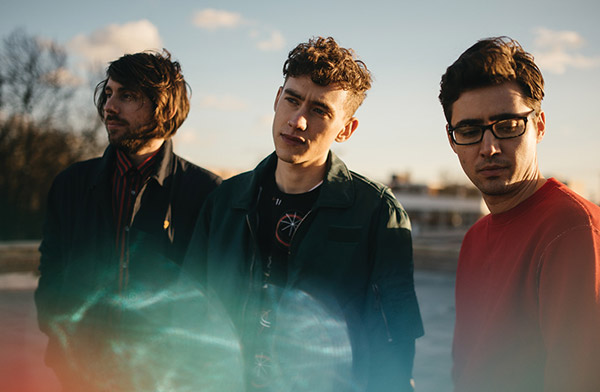
MW: How did that go for you initially?
ALEXANDER: Initially it was kind of amazing because I was desperate to leave my small town and experience things in the wider world. The first movie I got was filming in Tokyo and like going to Japan at 17 was mind-blowing for me. I was just so overwhelmed by the experience. It was overwhelming and confusing because I hadn’t studied to be an actor or anything. I didn’t know what I was doing. They had to explain to me about what “action” meant and all that stuff. So it was kind of difficult. But it also meant I could have a lifeline away from my country town, I could make my money, and pay my rent in a flat, make new friends. And there were gay people — it was a totally freer environment. It was exciting and I was overjoyed that I had been given the opportunity to be part of it.
MW: Did you enjoy the acting?
ALEXANDER: Some of it, yeah. Sometimes it’s frustrating because it’s just not your own work. And that’s what I wanted to do. I wanted to be able to write things — and often you’re just doing someone else’s work, you’re saying someone else’s lines in someone else’s movie. It doesn’t feel as creatively rewarding as music.
MW: So no aspirations to be a romantic lead.
ALEXANDER: The thing about acting is that 99% of it is the way you look. And if you don’t look like a romantic lead, then you aren’t going to play a romantic lead. And I never looked like a romantic lead. I don’t really care about being a great romantic lead.
MW: As far as music goes, what kind of things did you listen to growing up?
ALEXANDER: I liked a really big variety. Stuff that my mum would play in the car was my earliest musical obsession — stuff like Joni Mitchell and Alanis Morissette and Whitney Houston. I really got into Stevie Wonder at that time as well. Then when I was at school, I was into more grungier stuff — Nirvana, that kind of punk pop. I just ended up listening to shit like that. I was obsessed with Jeff Buckley. I listened to a lot of him and singer-songwriters. I was really into that for a long time. Male icons. I didn’t get into electronic music until a bit later on.
MW: Did you have any inkling that you would eventually be doing what you’re doing now?
ALEXANDER: [Laughs.] Oh yeah. I’ve been kind of curating this moment in my head for my entire life. I wrote a song when I was ten years old and performed it at my school assembly. I was like, “I want to be a singer-songwriter. I want to sing my own songs someday to thousands of people.” I was obsessed with becoming that person.
“I’ve grown up listening to women sing about men and men sing about women in this kind of direct, potent way. I wanted to be able to translate my own sexuality in a song, and be able to say ‘boy’ and ‘him.’“
MW: How did Years and Years form?
ALEXANDER: Mikey, the bassist, was over from Australia six years ago and wanted to start a band. He put an ad online and Emre responded. They met up and talked about starting a band. I met Mikey soon after at a party at my house, because he worked with my housemate. And he was like, “I’m starting a band,” and I was like, “I really want to sing again and I’ve just moved to London, let me be in your band.”
MW: Did they know you were gay from the start?
ALEXANDER: Oh, yeah, definitely. Never was an issue. They just saw that as something completely separate from what we were doing as a band. It didn’t feel relevant at the time.
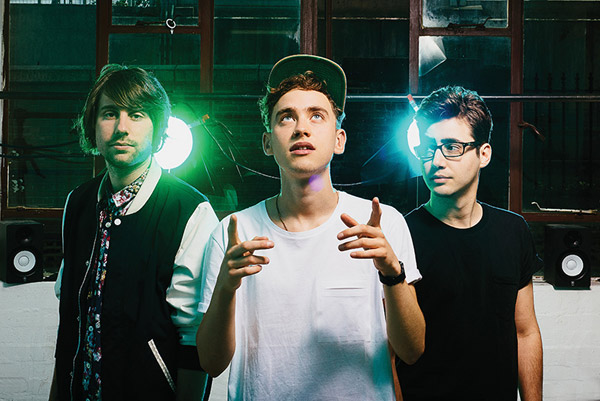
MW: Do you write most of the songs?
ALEXANDER: Yeah, yeah. Someone else might write the bass line or the drum rhythm, but I write every lyric and all the melodies.
MW: So how does it feel now knowing that hundreds of thousands of people are enjoying your music?
ALEXANDER: It’s very hard to describe how it feels because essentially I feel exactly the same as I always did. [Laughs.] Even like a year ago when nobody really knew our music. And now that people do know the songs and I can kind of objectively see how incredible it is, it’s almost too overwhelming. It feels very surreal. It’s a very strange, odd feeling. Because those songs [on the album], I wrote them very naively — I didn’t expect any of them to be hits on the radio. So it’s a very young experience for me, the whole thing. I still haven’t put my head around it.
MW: You’re adamant about the use of male pronouns in your lyrics. Why is that so important to you?
ALEXANDER: Well, just for myself, I wanted to be able to express my sexuality in a way that felt empowering. I’ve grown up listening to women sing about men and men sing about women in this kind of direct, potent way. I wanted to be able to translate my own sexuality — my own experiences — in a song, and be able to say “boy” and “him.” It felt good to do that.
On a larger scale, we should be having different kinds of relationships and different sexual dynamics represented in popular music. There’s lots of different ones, not just male and female, and I think people are ready to consume that. We don’t need to be force-fed just one dynamic. It’s boring and doesn’t represent the way people are now. I’m not trying to tell anybody how they should write music, or how they need to phrase the lyrics at all. I just think it would be cool if we could see it happen more often.
MW: What about the theory that when you write a song, if you keep it pronoun free, anybody can transpose themselves into that song?
ALEXANDER: That’s true. Lots of songwriters think that way and lots of songs are like that. But you know, lots of songs are also gender-specific. A lot of hip-hop, a lot of urban music, a lot of pop music is all gender-specific. It hasn’t stopped Katy Perry singing about boys. It didn’t stop Michael Jackson singing about girls. I think people don’t need to see an artist and find them only singing about the opposite gender.
MW: Do you think that being out at the start of your career makes it easier for you to be more open and expressive?
ALEXANDER: [Laughs.] That’s a good question. I suppose, what’s always been important to me is to never lie. If I’m going to be somebody who’s creating something, I want to be as honest and authentic as possible. But I’ve noticed that the press and the world sometimes want to label you. They want to define you. That’s, I guess, a natural instinct for anybody. But you can feel very limited to be defined by words.
I get labeled as gay singer, blah, blah, blah, and I’m okay with that. But also, I’m allowed to change and want different things and evolve. I’m only twenty-five. But I’m not really too worried about it because I feel like I’m just happy to be able to express myself in an honest way. No one else can have control over that — it’s my decision. So I guess I’ll keep doing that.
“We should be having different kinds of relationships and different sexual dynamics represented in popular music. There’s lots of different ones, not just male and female, and I think people are ready to consume that.”
MW: Are you having fun with it, enjoying this rush of success with the band?
ALEXANDER: Yeah, it’s wild and definitely crazy. I’m in a different country almost every other day. There’s no time to really reflect on what’s going on around you, but I love performing and I love singing and I love music and I do get to do those things pretty much every day. It’s way better than anything else. Of course, I go through strange head spaces — I get scared and anxious and such. But I feel like it’s a good opportunity to really have some incredible life experiences. I’m trying to make the most of it while I can.
MW: Is there a country in particular where the audience has really resonated with you?
ALEXANDER: Every place is unique. You have different shows on different nights with different crowds and it’s kind of difficult to just name one place as better than the other. But I’ve had a few shows that I’ve really loved. All my life I’ve wanted to go to San Fransisco, and it was just this tiny place called Rickshaw Stop. And that was an amazing show — I was feeling really emotional. It was a really special show with the crowd.
American audiences are always super-enthusiastic and responsive and nice. We go to Poland sometimes because for some reason we’re really big in Poland. Whenever we play a show there, we’re like rock stars. They’re so grateful that you’ve come and I get people who come up to me all the time in Poland saying “We’re so happy you’re here and your music’s amazing.” One guy said to me, “There are no openly gay artists — we’re so far behind and so happy you could come here and play.” That was an amazing experience.
MW: Poland still lags behind other European countries in fully embracing LGBT rights, doesn’t it?
ALEXANDER: They’re not as bad as Russia, but yeah, they’re still a little bit behind other places in Europe, definitely.
MW: How does it feel to play in a country that may not support gay rights?
ALEXANDER: Well, sometimes I really question the ethics of a country, but it would feel totally wrong to, in any way, place that upon the people who want to come to your show. In those kinds of countries, the response you get is normally amazing. But I wouldn’t want to possibly do a show for their government. [Laughs.]
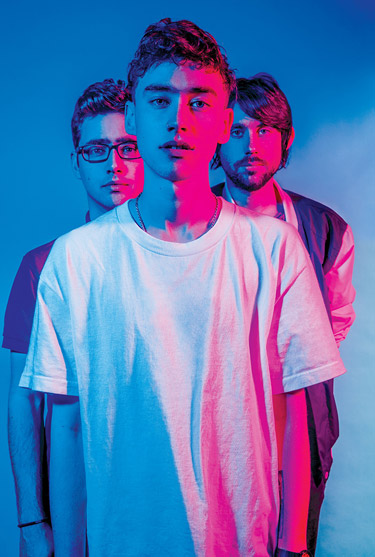
MW: When you do tour a country like that, and you are openly gay, do you think that culturally you have helped to bridge a gap?
ALEXANDER: That’s a really tough question to answer. Is it really our job in countries like the UK to say how other countries live? There are marginalized and oppressed people in those countries that don’t have a voice and don’t have any representation. So if can go to countries like that and do a show and that means something to those people and they can come and see you, then I think that is only a good thing. And I love to be able to do that.
MW: Is there any place you’ve played that you really don’t want to go back to?
ALEXANDER: [Laughs.] Let me see. The only thing is I’m a vegetarian, so often I can only ever eat bread and cheese in places like Prague. That’s kind of annoying after like the fourth day.
MW: So you really can’t partake in some of the cuisines in some of the countries?
ALEXANDER: Yeah. We went to Japan and it was amazing but I struggled to eat nearly anything.
MW: Some of their food is vegetarian-based.
ALEXANDER: Right. But so much stuff has fish sauce or oil, or is cooked in fish broth or something. It was difficult.
MW: You’re in a relationship with Neil Amin-Smith, the violinist from Clean Bandit.
ALEXANDER: That’s right. We met on tour. We supported Clean Bandit on tour in the UK, almost a year ago. I don’t know what the chances are that you meet someone that you like really fall in love with, on tour, and they also they just happen to be a hot violinist.
MW: How do you maintain a relationship when you’re both touring?
ALEXANDER: Well, it has some pluses because we both understand each other’s schedules and each other’s ridiculous lifestyles. It can be totally ludicrous, the things that you do. Equally, it’s really tough because you have zero routine. You can’t just have Friday night, pizza night, or you know, like Netflix. You can’t ever really do things like that. Which is maybe a totally fantasized idea of a couple. We just communicate a lot — as much as possible — and travel to see each other a lot in ridiculous ways. Like take a plane to spend the night in Italy. We make it work.
MW: Ireland recently became the first country to legalize gay marriage by popular vote. Two things: how does it make you feel as a young gay man to be watching all this happen, and as a celebrity, how does it feel to be possibly thought of as a spokesperson to help further the cause?
ALEXANDER: I am of course overjoyed when a country can legalize same sex marriage. I think that’s a great step in the right direction. Even for me, and I’m only 25, it has seemed like in the last 10 years that I’ve been aware of gay culture, things have really come a long way. But I’m also really aware of the history of gay rights and the gay movement and how things can change really radically, and can go backwards. Also the fight legally may have been won in some countries, but the attitudes take much longer to change.
I think there’s still a long way to go in terms of changing people’s hearts and minds towards homosexuality. I really care about LGBT issues. I really care about social change. The community is so diverse and there are so many different challenges and issues within it that we just need more people speaking about it. We need more people from the community speaking about their experiences and the problems they face and the experiences they’ve had so we can have a really layered conversation in the public eye. I will always speak out on it because I care about it. And hopefully it will encourage other people to do the same.
Years & Years perform Saturday, Sept. 19 at the 9:30 Club, 815 V Street. The show is currently sold out. To download the band’s debut album, Communion, visit yearsandyearsofficial.com.






